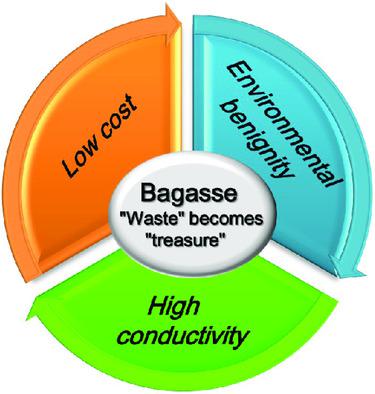当前位置:
X-MOL 学术
›
Energy Technol.
›
论文详情
Our official English website, www.x-mol.net, welcomes your
feedback! (Note: you will need to create a separate account there.)
A Stable Biomass‐Derived Hard Carbon Anode for High‐Performance Sodium‐Ion Full Battery
Energy Technology ( IF 3.6 ) Pub Date : 2020-10-30 , DOI: 10.1002/ente.202000730 Hai-Yan Hu 1 , Yao Xiao 2, 3 , Wei Ling 4 , Yuan-Bo Wu 2 , Ping Wang 2 , Shuang-Jie Tan 2 , Yan-Song Xu 2 , Yu-Jie Guo 2 , Wan-Ping Chen 2 , Rui-Ren Tang 1 , Xian-Xiang Zeng 4 , Ya-Xia Yin 2 , Xiong-Wei Wu 2, 4
Energy Technology ( IF 3.6 ) Pub Date : 2020-10-30 , DOI: 10.1002/ente.202000730 Hai-Yan Hu 1 , Yao Xiao 2, 3 , Wei Ling 4 , Yuan-Bo Wu 2 , Ping Wang 2 , Shuang-Jie Tan 2 , Yan-Song Xu 2 , Yu-Jie Guo 2 , Wan-Ping Chen 2 , Rui-Ren Tang 1 , Xian-Xiang Zeng 4 , Ya-Xia Yin 2 , Xiong-Wei Wu 2, 4
Affiliation

|
Hard carbon attracts great attention as an anode material for sodium‐ion batteries (SIBs), due to its high conductivity and environmental benignity. However, the practical applications of hard carbon anodes are largely limited by the poor cycling stability and high cost. Herein, bagasse, one of the most abundant biological wastes, is used as a carbon source to construct hard carbon anodes by high‐temperature thermal decomposition. This special material with moderate surface area exhibits long‐term cycling stability (91.5% retention upon 800 cycles at 1000 mA g−1). Remarkably, the full battery delivers high midpoint voltage with 2.9 V and superior initial Coulombic efficiency with 93.1% as well as excellent cycling stability (61% retention upon 300 cycles at 125 mA g−1). The concept of turning waste into treasure provides an idea for the design of anode materials for SIBs.
中文翻译:

稳定的生物质衍生硬碳阳极,用于高性能钠离子全电池
硬碳作为钠离子电池(SIB)的负极材料备受关注,因为它具有较高的导电性和环境友好性。但是,硬碳阳极的实际应用在很大程度上受到循环稳定性差和成本高的限制。在这里,蔗渣是最丰富的生物废物之一,被用作碳源通过高温热分解构造硬碳阳极。这种具有中等表面积的特殊材料具有长期的循环稳定性(在1000 mA g -1的800个循环中保持91.5%的稳定性)。值得注意的是,整个电池可提供2.9 V的高中点电压和93.1%的出色初始库仑效率,以及出色的循环稳定性(在125 mA g -1的300次循环中保持61%的稳定性))。将废物变成珍宝的概念为SIB的负极材料设计提供了一个思路。
更新日期:2021-01-05
中文翻译:

稳定的生物质衍生硬碳阳极,用于高性能钠离子全电池
硬碳作为钠离子电池(SIB)的负极材料备受关注,因为它具有较高的导电性和环境友好性。但是,硬碳阳极的实际应用在很大程度上受到循环稳定性差和成本高的限制。在这里,蔗渣是最丰富的生物废物之一,被用作碳源通过高温热分解构造硬碳阳极。这种具有中等表面积的特殊材料具有长期的循环稳定性(在1000 mA g -1的800个循环中保持91.5%的稳定性)。值得注意的是,整个电池可提供2.9 V的高中点电压和93.1%的出色初始库仑效率,以及出色的循环稳定性(在125 mA g -1的300次循环中保持61%的稳定性))。将废物变成珍宝的概念为SIB的负极材料设计提供了一个思路。











































 京公网安备 11010802027423号
京公网安备 11010802027423号